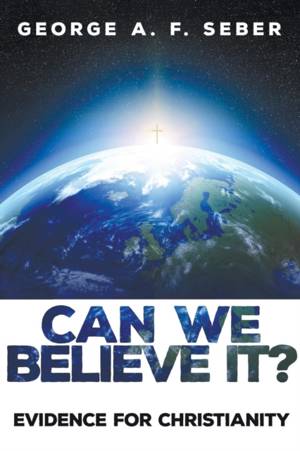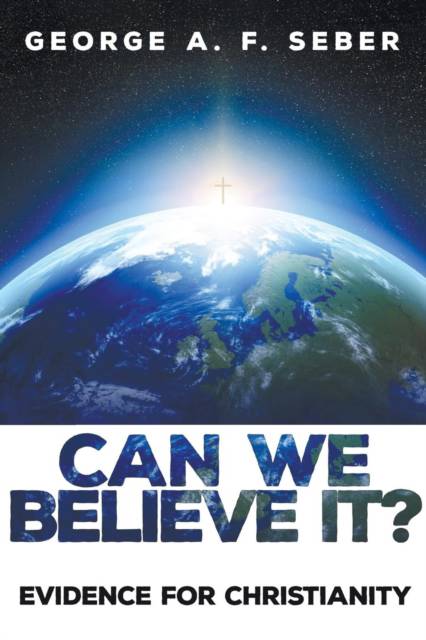
- Retrait gratuit dans votre magasin Club
- 7.000.000 titres dans notre catalogue
- Payer en toute sécurité
- Toujours un magasin près de chez vous
- Retrait gratuit dans votre magasin Club
- 7.000.0000 titres dans notre catalogue
- Payer en toute sécurité
- Toujours un magasin près de chez vous
Description
Many people today believe that Christianity will not stand up to a scientific or intellectual investigation, and that science has all the answers. Such an attitude shows an ignorance of the wealth of available philosophical arguments and scientific information that Dr. Seber taps into in this book. Initially, he shows that mathematics and science are limited in what they can prove in spite of modern advances. He then summarizes his material using basic questions as ten chapter headings: Does God exist, is there a spiritual dimension, do we have free will, is the Bible reliable, who is Jesus, do miracles occur, why does God allow suffering and evil, is Christianity a blessing or a curse to society, what about evolution, and how can we get to know God? The reader may have other questions and a number are considered within each chapter, such as problems with philosophical materialism and atheism. He draws his material from many sources including statistics, physics, cosmology, genetics, philosophy, history, biochemistry, theology, psychology, archaeology, and biology. Comparatively, new subjects like epigenetics, chaos theory, and quantum mechanics, that many people are not aware of, are brought into the picture. These topics change our thinking about reality. ""This is a dangerous book for atheists and agnostics. The assembling of so much evidence might start to convince them that Christianity is not just blind faith, but a religion that has clear proof available. Much unique data is presented and the arguments from mathematics and physics are particularly convincing. For Christians, the book is a very helpful compendium of data, will strengthen their faith, and give arguments pertinent to their dialogue with others."" --Associate Professor Graeme Woodfield, Faculty of Molecular Medicine and Pathology, The University of Auckland, New Zealand ""Written in a clear and lucid style, devoid of technical philosophical terminology, Seber's work is easy to follow, is compelling readying, and aims to be used widely. Written by one who is both a mathematician/statistician and Christian counselor, this work offers many unique insights."" --Myk Habets, Head of Carey Graduate School, Carey Baptist College, Auckland, New Zealand; Author, Theology in Transposition: A Constructive Appraisal of T.F. Torrance ""George Seber is a superb synthesizer of literature and ideas. He makes challenging arguments accessible and he gets you there fast. . . . Seber writes concisely and comprehensively. In this book, as with all of Seber's books, you are efficiently introduced to all the big ideas and arguments that really matter."" --Christopher Wild, Author, Chance Encounters and Nonlinear Regression George Seber is an Emeritus Professor of Statistics at Auckland University, New Zealand, a Fellow of the Royal Society of New Zealand, and recipient of the Hector medal in Information Sciences by the Society. He is the author, or coauthor, of seventeen books in statistics and, more recently, being a trained counselor/psychotherapist, has written an extensive book on counseling. He has published about ninety research articles in a wide variety of statistical subjects.
Spécifications
Parties prenantes
- Auteur(s) :
- Editeur:
Contenu
- Nombre de pages :
- 406
- Langue:
- Anglais
Caractéristiques
- EAN:
- 9781498289191
- Date de parution :
- 21-03-16
- Format:
- Livre broché
- Format numérique:
- Trade paperback (VS)
- Dimensions :
- 155 mm x 234 mm
- Poids :
- 598 g

Les avis
Nous publions uniquement les avis qui respectent les conditions requises. Consultez nos conditions pour les avis.






